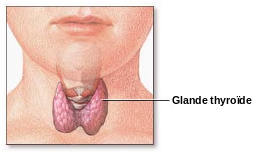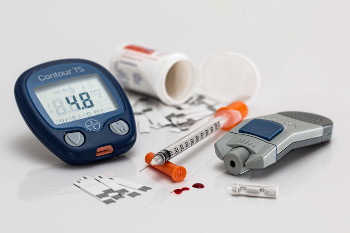Other Unexpected Weight Gain Conditions
What if I don’t have Lipedema? What else could it be?
There are many conditions that produce unwanted weight gain, despite normal eating and sleeping patterns, and attempts to lose weight once gained. Here are some possibilities, in no particular order, and does not represent all the possible conditions producing unwanted weight gain. Hopefully you can find some answer through one of these conditions if Lipedema doesn’t sound like your symptoms.
Lymphedema
Lymphedema can certainly be present with Lipidema in Stage 4 of the disease. However, Lymphedema can easily exist without Lipedema. Weight gain will happen when the affected limb(s), neck, face or abdomen swells with excess lymph fluid. The most common instance of Lymphedema occurs in the corresponding arm of breast cancer surgery and treatment. Reduction of excess lymph fluid is possible depending on the stage of Lymphedema and type of treatment applied to the affected area.
Read more about Lymphedema on this site.
PolyCystic Ovarian Syndrome (PCOS)
 PCOS is cause by an imbalance of reproductive hormones in women. It affects the ovaries either by not developing an egg or releasing the egg during ovulation. It affects 5-10% of women of childbearing age. While PCOS can happen anytime after puberty most women find out in their 20s and 30s when they experience trouble getting pregnant.
PCOS is cause by an imbalance of reproductive hormones in women. It affects the ovaries either by not developing an egg or releasing the egg during ovulation. It affects 5-10% of women of childbearing age. While PCOS can happen anytime after puberty most women find out in their 20s and 30s when they experience trouble getting pregnant.
PCOS can cause missed or irregular menstrual periods which then could lead to infertility or the development of cysts in the ovaries. The risk of developing PCOS is higher if you are obese or have a family history of PCOS and affects all ethnicities.
Symptoms of PCOS can include irregular menstrual cycles (miss or have fewer periods), excess hair (on face, chin or parts where men usually have hair), acne (on face, chest and upper back), thinning hair, weight gain, darkening of the skin (in neck creases, groin and under breasts), and skin tags.
Read more about PCOS.
Hypothyroidism
 As the name implies this condition involves abnormal thyroid activity. It is estimated 27 million Americans have thyroid problems and many of them are unaware of this imbalance, hypothyroidism. Hypothyroidism is an underactive thyroid condition with unexplained weight gain or inability to lose weight being one of its primary symptoms.
As the name implies this condition involves abnormal thyroid activity. It is estimated 27 million Americans have thyroid problems and many of them are unaware of this imbalance, hypothyroidism. Hypothyroidism is an underactive thyroid condition with unexplained weight gain or inability to lose weight being one of its primary symptoms.
The thyroid gland, which is a butterfly gland at the base of your neck is responsible for regulating many of your body’s processes, including metabolism. So it stands to reason if your thyroid is underactive your metabolism slows down, thus overall energy production decreases. In addition to the inability to lose weight, hypothyroidism can produce fatigue, muscle and joint pain, hair loss, constipation, anxiety and low body temperatures.
Read more about hypothyroidism.
Diabetes
 If you are a recently diagnosed Diabetes Type 2 patient you need insulin to help your body manage blood sugar levels. As a result of starting an insulin treatment plan your body will begin to better manage sugar, fat and protein. Given your current eating habits and starting insulin you may notice weight gain. This is a good sign insulin treatment is working for you. However, to get your weight back under control you will need to modify your eating and exercise habits to get reduce the extra weight.
If you are a recently diagnosed Diabetes Type 2 patient you need insulin to help your body manage blood sugar levels. As a result of starting an insulin treatment plan your body will begin to better manage sugar, fat and protein. Given your current eating habits and starting insulin you may notice weight gain. This is a good sign insulin treatment is working for you. However, to get your weight back under control you will need to modify your eating and exercise habits to get reduce the extra weight.
Another side effect of insulin treatment is re-hydration. Your body will start retaining water, which will cause weight gain due to reduced urination from onset of the condition. Another weight gain cause might be other medications you are taking with your insulin that could cause unexpected weight gain.
Read more about Diabetes weight gain.
Pregnancy
 This may seem like an obvious source of weight gain, and it is for those who know they are pregnant. Some woman do not know they are pregnant and mistake it for something else. This could include:
This may seem like an obvious source of weight gain, and it is for those who know they are pregnant. Some woman do not know they are pregnant and mistake it for something else. This could include:
- being under too much stress
- being diagnosed with PCOS and believing they can’t get pregnant
- mistaking spotting for light periods
- gaining too little weight to be a “perceived” pregnancy
- not having any of the regular signs of a pregnancy
Congestive Heart Failure
 If your heart muscle isn’t pumping enough blood to your entire body you have heart failure. Because the heart is not pumping hard enough fluid starts accumulating and becomes congested, hence the condition congestive heart failure. During this state your body may also retain salt and water in the blood, increasing the volume of blood in your body. This may cause your heart to beat faster or enlarge. This condition can be treated to slow progression of the disease. Of course if at any time you experience shortness of breath or serious pain call 911 or your doctor immediately for treatment!
If your heart muscle isn’t pumping enough blood to your entire body you have heart failure. Because the heart is not pumping hard enough fluid starts accumulating and becomes congested, hence the condition congestive heart failure. During this state your body may also retain salt and water in the blood, increasing the volume of blood in your body. This may cause your heart to beat faster or enlarge. This condition can be treated to slow progression of the disease. Of course if at any time you experience shortness of breath or serious pain call 911 or your doctor immediately for treatment!
Symptoms of Congestive Heart Failure include:
- Weakness and feeling tired
- Shortness of breath and coughing (hard to catch your breath)
- Weight gain (sudden steady weight gain of 2-3 pounds in 24 hours or 5 pounds per week)
- Swelling of feet or ankles
- Changes in frequency of urination (less during the day or more at night)
Read more about Congestive Heart Failure.
Summary
This list does not represent all the possible unexpected weight gain conditions and diseases. They are only listed as the most common options other than Lipedema. As always, please consult your medical profession for anything, including unexpected weight gain, that seems suspicious with your health. It is your body and you have the right to pursue a diagnosis and treatment from your medical team to improve the quality of your life.
To your improved health!